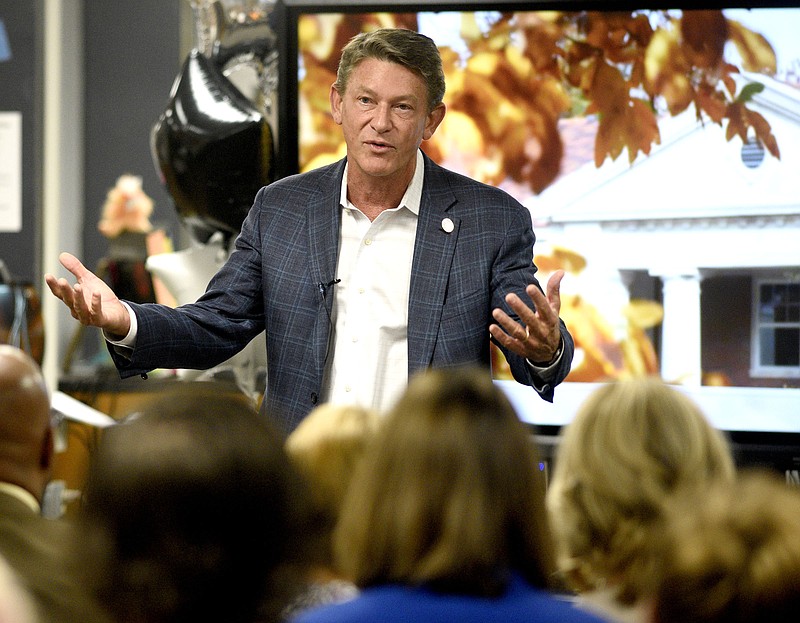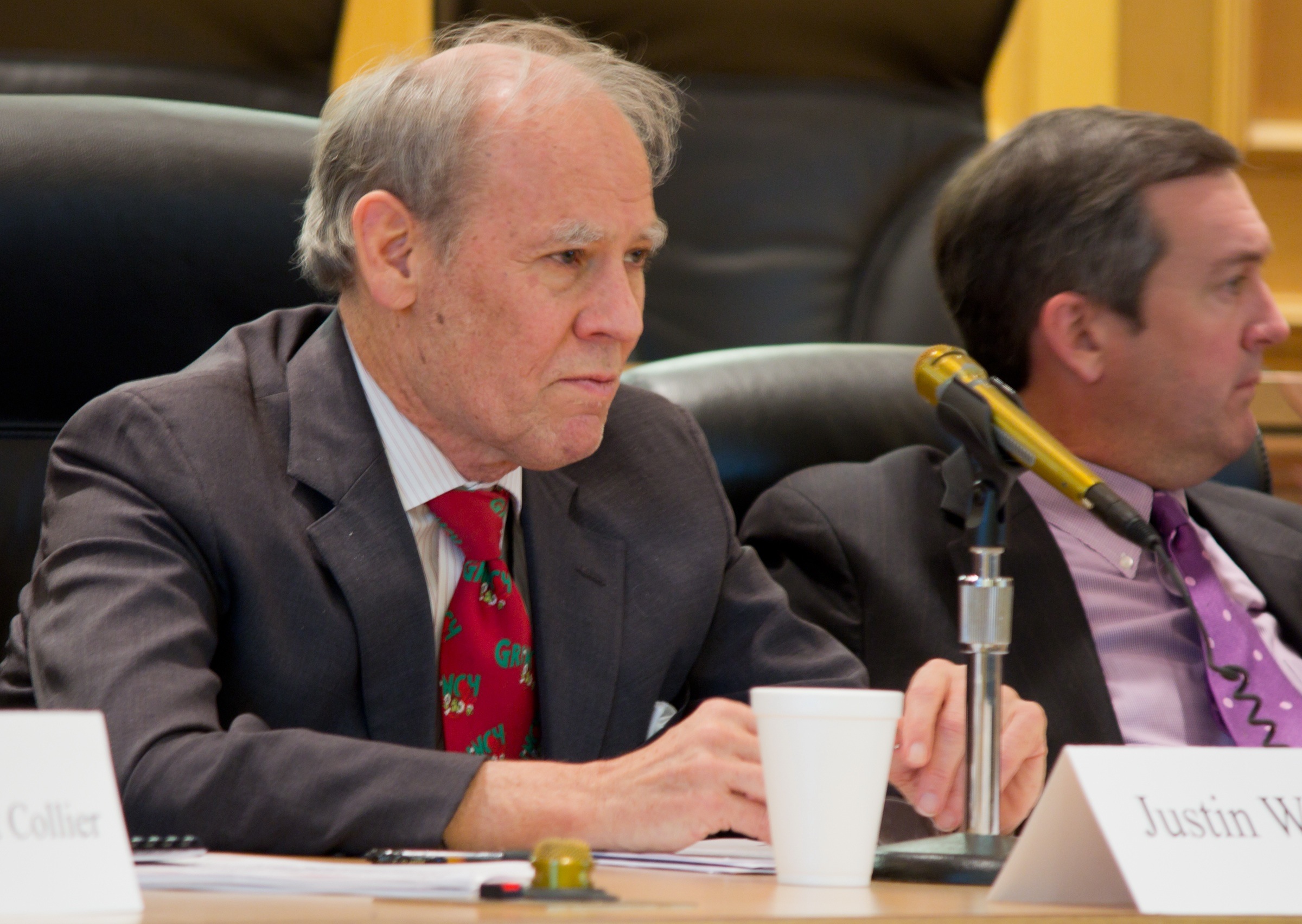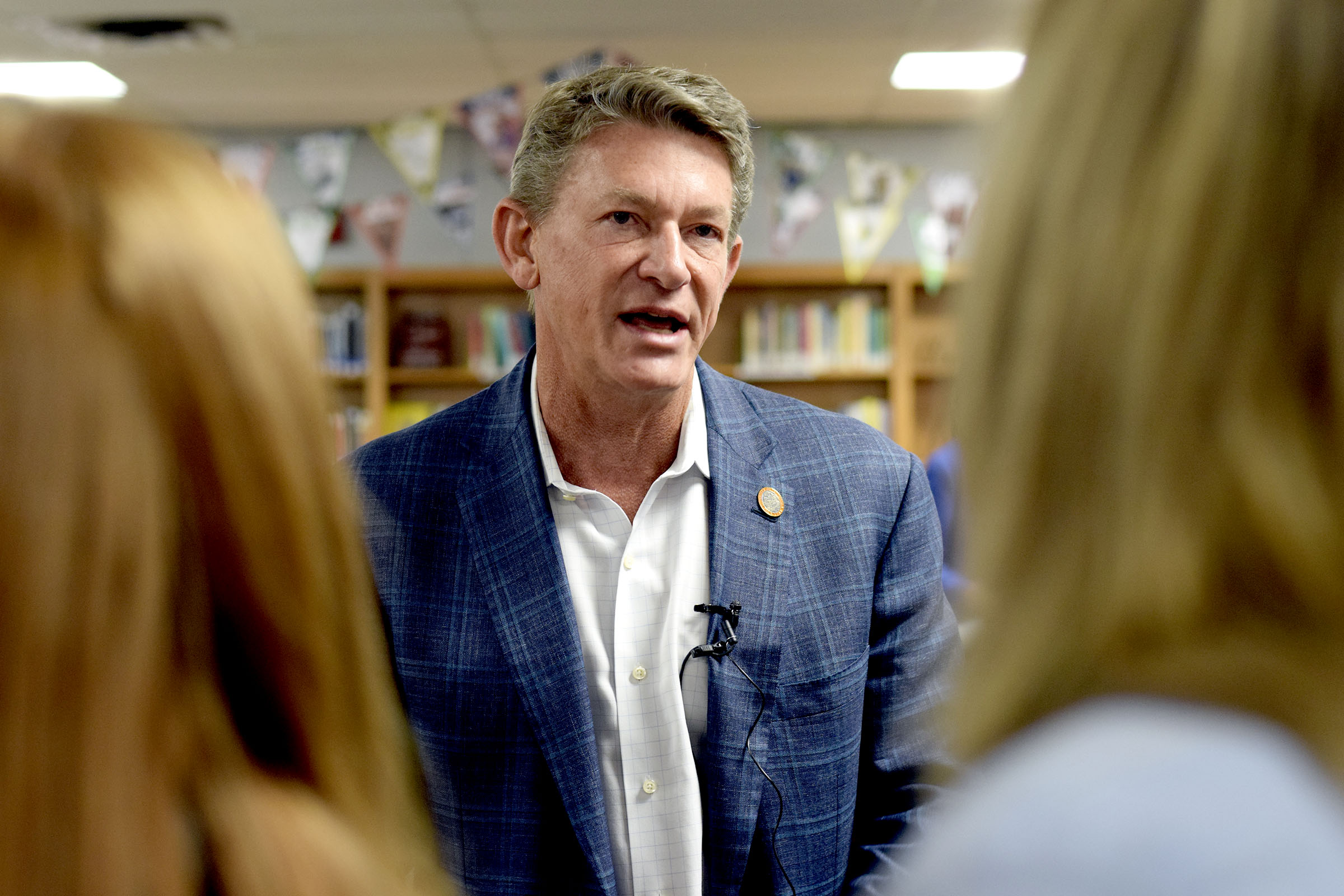NASHVILLE - The University of Tennessee system's implementation of its own "last-dollar" college tuition scholarship program has come under challenge from state auditors who question interim UT system President Randy Boyd's authority to implement it without getting the UT Board of Trustees' specific approval.
Comptroller Justin Wilson's office says in the finding that trustees "neither officially approved the UT Promise program nor ensured management assessed the program's long-term impact."
"We said UT should have gotten board approval before announcing Tennessee Promise," Wilson told state House and Senate Government Operations Committee members earlier this month. "They disagreed. We don't read the language the same way they do."
Indeed, UT does contest the finding in the audit, one of two done since the 2018 passage of then-Gov. Bill Haslam's UT Focus Act. The act, which restructured the UT system's board of trustees, was spurred by Republican lawmakers' penchant for ranting at UT. That was often directed at the Knoxville campus, which GOP lawmakers routinely attacked as a bastion of political correctness over issues like gender-neutral pronouns and promiscuity with regard to UT Knoxville's annual "Sex Week."
In its official audit response, UT disagreed with Wilson's finding. It said Boyd's UT Promise, which is modeled after the earlier Tennessee Promise program, which offers similar tuition aid and mentorships for students attending community and technical colleges, didn't require trustees' formal approval for a simple reason.
"UT Promise is not a policy; it is a mentorship program like many other scholarship programs offered by the University," UT said in its response. "Likewise, UT Promise is not a 'waiver or discount of students fees'" as characterized in the audit, UT said.
The university system also made the case in its formal response that when UT trustees approved the overall budget, they were in effect approving everything in it, including the new initiative.
Boyd defends action, mildly
In his own appearance before the joint committee, Boyd made the same argument about initiating the UT Promise but used a more conciliatory approach. And the interim president noted he did speak with new trustees individually in private before announcing it publicly.
"I should probably just start with saying that I agree with the comptroller," Boyd told legislators. "When we have major initiatives, that's something we should consider to have conversations publicly about them. So your chief, key observation is something that we agree with."
Noting that UT, which has campuses in Knoxville, Chattanooga, Martin and Memphis, seriously takes its status as a land grant institution to provide "more opportunity for more Tennesseans," Boyd told lawmakers that if a student's family makes less than $50,000 and the student is academically qualified, they can enlist in the program and attend "free of tuition and fee.
"We'll also be providing them with a series of mentors," Boyd said, later adding, "we're going to require them to have skin in the game" by doing a day's worth of community service each semester.
UT Board Trustee Chairman John Compton, a 1983 UT Knoxville graduate and former PepsiCo CEO, told lawmakers "it's my personal opinion that the introduction of the UT Promise scholarship program further expands the university's commitment to affordability and access to all."
First tnAchieves, then Tennessee Promise, now UT Promise
Few people likely understand the ins and outs of combining last-dollar scholarships for students along with mentor guidance as well as Boyd, a Knoxville businessman.
After making a fortune in the pet product business - think "Invisible Fence" - Boyd spearheaded creation of tnAchieves, a private nonprofit Knoxville group working to get first generation students into college.
The idea is that with federal Pell Grants and similar aid already available, providing the additional "last dollar" scholarship money wasn't so huge a lift. Enlisting the help of volunteer mentors, the program helps prospective students apply for and succeed in school. The programs also require students to perform some type of community service.
The local program attracted the attention of a fellow Knoxvillian, Haslam, who wanted to boost the number of Tennesseans with community or technical college or university degrees. With Boyd coming to work for Haslam as an unpaid adviser, Haslam initiated Drive to 55, an effort to get 55% of adult Tennesseans with college degrees or certificates by 2025.
Along with that was a method to get part way there, the Tennessee Promise, which now provides last-dollar scholarships and the voluntary mentor program for students attending community or technical colleges. It relies on funding from a special Tennessee Education Lottery account.
The program has drawn national attention. Haslam later made Boyd his commissioner of community and economic development. Last year, Boyd ran for governor, losing the 2018 GOP primary to now-Gov. Bill Lee in a four-candidate field. Before leaving office, Haslam named Boyd interim UT president.
And now there's a UT Promise which Boyd told lawmakers could allow a student to attend any UT campus "free of tuition and fees. We'll also be providing them with a series of mentors [and]we're going to require them to have skin in the game" by doing a day's worth of community service each semester.
The UT Promise is going to be a "lot less expensive than sometimes people might think," Boyd said. While first-year estimates peg it at $5.7 million, Boyd said "that may sound like a lot, [but] in our overall budget, that's less than 5% of the total institutional aid that we provide students in the system. And it's only .37% of our entire budget."
Moreover, the university is creating a $100 million endowment to fund it, Boyd said. Having already raised more than $25 million in the past three to four months, he said, that's a quarter of the way to the endowment's goal. "Alumni are excited about this program, and they're willing to support students that apply for this program," he told lawmakers.
He added: "In spite of all those things I just shared, it is something that in the future that when we do have big public initiatives, whether we're required to vote on it or not, it may be something that we'll look at and [have] the conversations about in the general forum."
The audit also covered a number of other areas regarding the UT system.
Contact Andy Sher at asher@timesfreepress.com or 615-255-0550. Follow him on Twitter @AndySher1.



